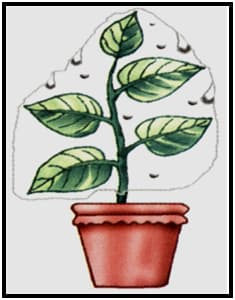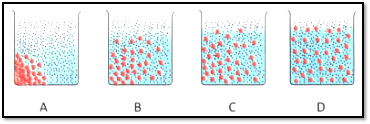Veer Bala Rastogi Solutions for Chapter: Transport of Food and Minerals in Plants, Exercise 3: TEST Yourself
Veer Bala Rastogi Biology Solutions for Exercise - Veer Bala Rastogi Solutions for Chapter: Transport of Food and Minerals in Plants, Exercise 3: TEST Yourself
Attempt the practice questions on Chapter 1: Transport of Food and Minerals in Plants, Exercise 3: TEST Yourself with hints and solutions to strengthen your understanding. SRIJAN ICSE BIOLOGY solutions are prepared by Experienced Embibe Experts.
Questions from Veer Bala Rastogi Solutions for Chapter: Transport of Food and Minerals in Plants, Exercise 3: TEST Yourself with Hints & Solutions
Upward movement of water in the stem takes place through _____. (transpiration pull/ascent sap)
State whether the statement is true, or false. If false, rewrite the correct statement.
Osmosis and diffusion are the same phenomena.
State whether the statement is true or false. If false rewrite the correct statement.
Plants lose water by the process called Translocation.
State whether the statement is true or false. If false, rewrite the correct statement.
Root hairs are multicellular structures.
State whether the following statement is true or false. If false, rewrite the correct statement.
Xylem and phloem are vascular tissues.
State whether the following statement is true or false. If false, rewrite the correct statement.
Water transport in unicellular plants takes place by diffusion.
An experimental set-up as shown in the figure was placed in sunlight for about hours. Study it and answer the question that follows.

(a) What phenomenon does this experiment demonstrate?
(b) Why was the plant covered with a transparent polythene bag?
(c) What will you find if the set-up is placed inside the room?
In the given experimental setup, a dye is placed at the bottom of the beaker filled with water. After some time, the entire water in the beaker became coloured uniformly as shown in figure D.

(a) Name and define the phenomena shown in this experiment.
(b) In the above figure, two kinds of molecules are shown: larger and smaller. Mention which molecules are of the solute and, which are of the solvent.
(c) In all the bigger molecules in A are enclosed in a permeable membrane, what will be the nature of the movement of molecules if any?
